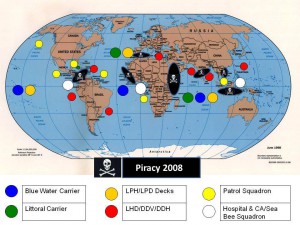
Google Glass: Are Weaponized Nanodevices and Ultra-Miniaturization Coming?
Google’s earnings for the April, May, June 2013 quarter reminded me that Google faces some challenges. Expenses moved up a couple of billion from the same quarter in 2012. (Source). More troubling, Business Insider said, “The total number of paid clicks that Google gets continues to go up, but Google gets paid less for each one. In other words, Google's rock is still rolling up the hill but it takes a lot more energy to maintain that momentum than it used to.” (Source)
Google may have to do some fast dancing both in its current pricing in the short term and with its innovations over a longer period of time. Google may be looking at the US Federal government as a customer for some of the firm’s technology to bolster its revenues. Google and the military? Google and DARPA? Maps, yes, but a computer in your eyeball or smart nanodevices which are undetectable? It might be a trajectory worth considering. Apparently Microsoft is working on a wristwatch smartphone described in “Microsoft Testing Surface Watch”? But devices are bulky, so very small devices make a great deal of sense to the forward-thinking.
Perhaps the urgency in innovation is the reason Google has been pushing forward with Glass’s next version? On the recent quarter’s earnings call, Larry Page, Google’s senior manager, said: “I love using Glass because I feel like every time I'm using Glass I'm living that future, that's really, really exciting to me.”
Have I inadvertently glimpsed one possible trajectory for Google Glass? Is Google leapfrogging smartphones as wristwatches and moving beyond contact lenses and belt packs? Is Google looking to make revenue waves in medical diagnostics, nanomachines, and possibly DNA-scale communication devices? Science fiction or the path that Google Glass is now following? Is that $2 billion jump in R&D an indication that clean rooms, new research facilities, and world-class nanotechnology experts are signaling a new direction for Google—nano-bioengineering and synthetic biology? Could Google become a nanotechnology giant? I found some interesting open source intelligence which may help frame this question, but I only know one thing for certain. Google is not doing much talking in public about self-assembly, bioengineering, and nanotechnology.






